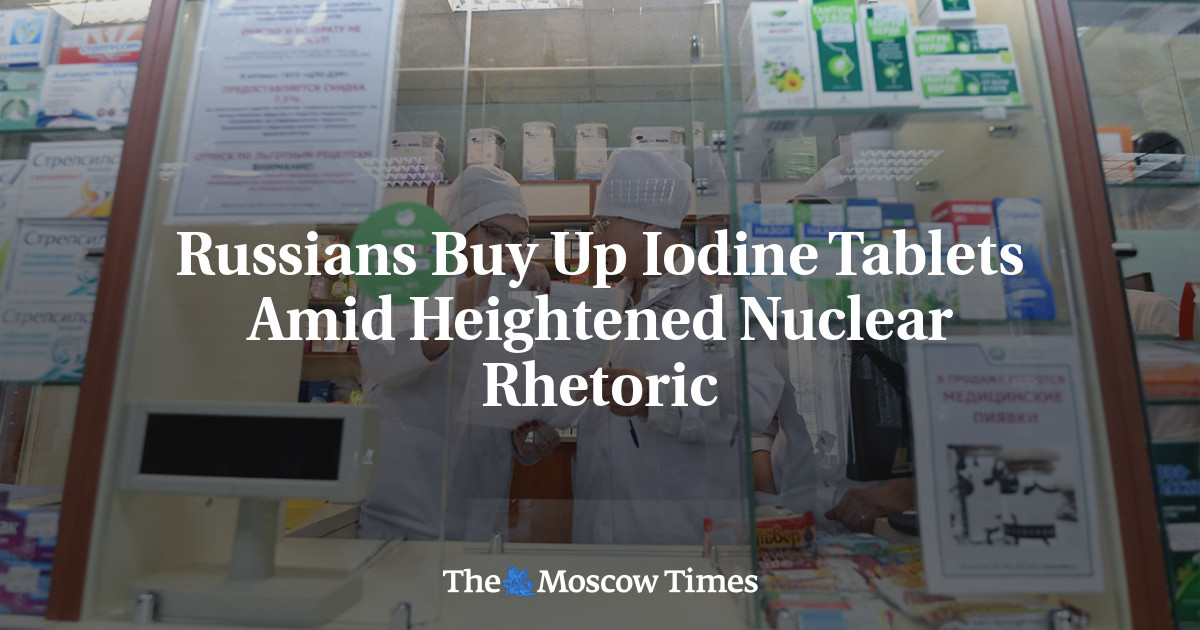
President Vladimir Putin’s veiled threats to use nuclear weapons in Ukraine have fueled huge increases in demand for iodine pills in Russia, the RBC news website reported Thursday.
Potassium iodide sales in Russian pharmacies have risen by 150% since Russia invaded Ukraine on Feb. 24, RBC cited the pharmaceutical marketing agency DSM Group as saying.
In total, over 850,000 packets of potassium iodide worth some 115.2 million rubles ($1.88 million) were sold in Russia between January and October.
The chemical compound is used in the event of exposure to radiation and works by blocking the thyroid gland from absorbing the radioactive iodine typically released in a nuclear emergency.
Yandex recorded a sevenfold increase in inquiries for potassium iodide in September. Other drugs that mitigate the effects of radiation saw similar growth compared with September 2021.
Sales of painkillers and first aid supplies including blood clotting sponges and tourniquets have also surged by as much as 1,200% since late February, according to the Russian pharmacy aggregator Megapteka.
In a separate report on Friday, the state-run TASS news agency reported a huge increase in the sale of antidepressant medications in Russia, with 8.4 million packs being sold between January-October, a jump of 70%.
The surge in demand for iodine pills comes after Putin threatened Ukraine’s Western allies with Russia’s vast nuclear arsenal and put the country’s military deterrent forces on high combat alert following his decision to invade Ukraine.
The Russian president did little to calm global nerves when he personally oversaw annual nuclear deterrence drills earlier this week, though the United States stressed they were a routine exercise and played down their significance.
On Thursday, Putin appeared to walk back his nuclear rhetoric, saying that Russia deploying nuclear weapons in Ukraine would “make no sense at all to us — either in political or military terms.”